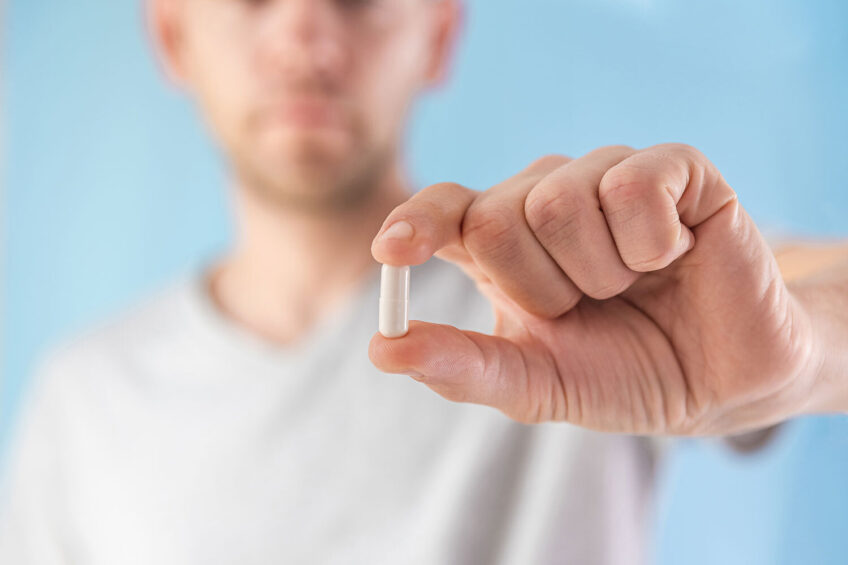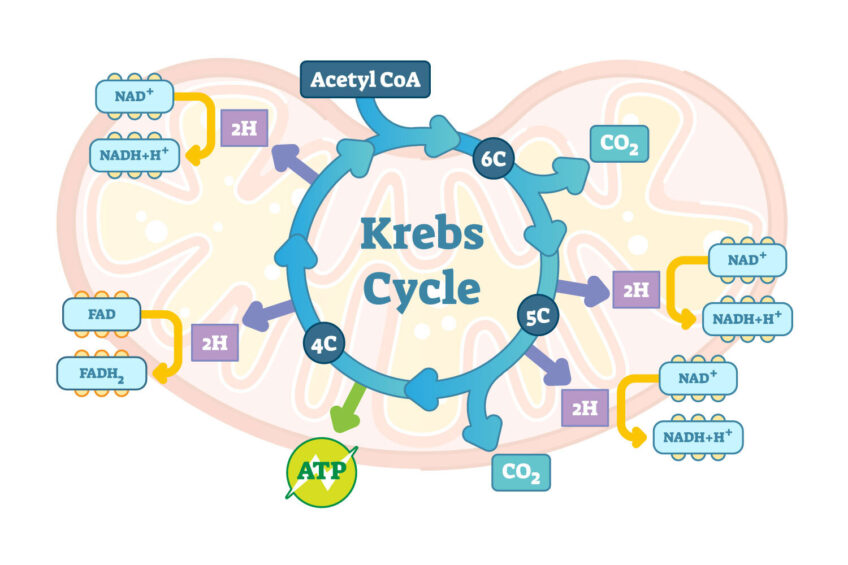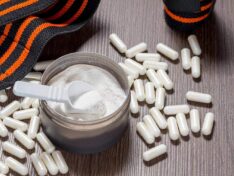Comprehensive Guide to NAD+ Cellular Repair & Anti-Aging Supplements
The quest for anti-aging and optimal health is a journey many of us are eager to embark upon. With medical science, the spotlight has increasingly turned toward cellular health.

Buzzwords like NAD+, NMN, CoQ10, and even telomere length have found their way into wellness blogs and scientific journals. But what do these terms mean, and how can they benefit you? Let's explore the fascinating world of cellular repair supplements, from their biochemical roles to their potential impact on various health conditions.
The Intricacies of Cellular Function
Cells are at the core of every living being -- the microscopic units that govern growth, metabolism, and all biological functions. As cells age or become damaged, their efficiency wanes, manifesting as fatigue, age-related decline, and susceptibility to illness. By understanding and harnessing cellular repair mechanisms, we aim to slow down this decline and optimize bodily functions.
NAD+ is emerging as the key anti-aging compound that may help maintain youthful cellular functioning as we age. Let's look at the evidence for the anti-aging effects of NAD+ and other supplements while considering important considerations for those looking to optimize cellular functions.
What is NAD+?
NAD+, or nicotinamide adenine dinucleotide, is a coenzyme found in all living cells. It plays a vital role in cellular energy metabolism and over 500 different enzymatic reactions. NAD+ helps convert nutrients from food into energy through processes like glycolysis and the citric acid cycle, also known as the Krebs cycle. NAD+ also regulates DNA repair, cell signaling pathways, circadian rhythms, and other key physiological processes.

Inside cells, NAD+ cycles between an oxidized and reduced form, NADH. This transformation between oxidation states fuels energy production and underpins the activity of important NAD+ proteins called sirtuins and PARPs.
Why Do NAD+ Levels Decline with Age?
Research shows that NAD+ levels decline steadily as we get older. There are several reasons for this age-related drop:
- Increased DNA damage leads to overactivation of PARP enzymes, which deplete NAD+ stores.
- Mitochondrial dysfunction impairs NAD+ regeneration.
- Circadian rhythm disruption reduces NAD+ biosynthesis.
- Stem cells lose the capacity to regenerate NAD+ effectively.
This decline reduces cellular energy metabolism, impairs DNA repair, accelerates mitochondrial decay, and contributes to many effects we associate with biological aging.
How Can NAD+ Precursors Counteract This Decline?
To counteract falling NAD+ levels, researchers have explored the potential of supplementing with compounds that serve as precursors to NAD+ biosynthesis. Three in particular show promise as NAD+ boosters:
Nicotinamide Mononucleotide (NMN)
NMN is a direct precursor to NAD+ that is converted to nicotinamide adenine dinucleotide through a series of phosphorylation steps. Studies show that NMN administration can significantly increase NAD+ levels in the blood and tissues throughout the body.
Animal research indicates NMN can counteract age-related mitochondrial dysfunction, restore gene expression patterns to more youthful profiles, enhance stem cell function, and extend lifespan.
Human trials are limited but show increased NAD+ levels and potential metabolism and blood flow benefits.
Nicotinamide Riboside (NR)
NR is another NAD+ precursor converting to NMN before finally forming NAD+. It effectively raises NAD+ levels throughout the body by crossing the cell membrane and replenishing depleted stores. Research indicates NR activates sirtuin genes involved in longevity and improves metabolic health. It may also enhance mitochondrial biogenesis and neuroprotective capacities.
Early clinical trials show benefits for blood pressure, exercise performance, and neurological function.
NAD+
Direct NAD+ supplementation is also possible, though its poor bioavailability may limit its effectiveness. And while the studies suggest potential cognitive and anti-aging benefits from intravenously injected NAD+, oral supplements have shown minimal benefits. Oral NAD+ may provide cellular repair effects following damage or injury, but steady-state benefits seem limited.
Which NAD+ Supplement is the best to take?
NMN and NR appear to be the most effective oral NAD+ precursors, with NR having perhaps the best balance of safety, bioavailability, and affordability. But additional research is still needed, especially larger and longer-term human trials.
The list of NAD+ supplements to strongly consider are one of the following:
- ReservaCell by Thorne - a powerhouse combination of nicotinamide riboside with resveratrol, quercetin phytosome, and betaine.
- NiaCel by Thorne - a unique form of nicotinamide riboside (NR) bound to hydrogen malate salt.
- TRU NIAGEN - the original patented nicotinamide riboside NAD+ supplement.
- NAD+ Cell Regenerator by Life Extension - also includes trans-resveratrol, quercetin, and fisetin.
Other Anti-Aging Molecules that Support Cellular Repair
In addition to NAD+ boosters, other compounds show promise for supporting healthy cellular functioning and regeneration as we age:
- Coenzyme Q10 (CoQ10) - This powerful antioxidant plays a dual role -- it not only aids
mitochondrial energy production but neutralizes harmful free
radicals. CoQ10 is widely used for cardiovascular health, preserves
cellular integrity, and shows potential in treating neurodegenerative
disorders.
- Omega-3 Fatty Acids - EPA and DHA support cellular membrane fluidity and gene expression and can help suppress chronic inflammation.
- Resveratrol - Activates sirtuins and AMPK, which regulate metabolism, mitochondrial function, and longevity pathways.
- Glutathione - A major intracellular antioxidant that removes free radicals and enhances detoxification.
- Pyrroloquinoline Quinone - PQQ stimulates the growth of new mitochondria in aging cells, a process known as mitochondrial biogenesis. It's often used for cognitive and energy enhancement.
- L-Carnitine - Primarily known for its role in fat metabolism, L-carnitine facilitates the transport of fatty acids into the mitochondria, thus providing a fuel source for energy production. This supplement in acetyl-L-carnitine form is popular for mitochondrial and cellular energy.
- Alpha-lipoic Acid - ALA is a versatile antioxidant that combats oxidative stress while aiding energy production at the cellular level. It has shown promise in addressing nerve-related symptoms of diabetes.
- Creatine - Favored by athletes, creatine enhances short-term energy reserves in cells, allowing for better athletic performance and quicker recovery.
- Astaxanthin - This potent antioxidant protects cellular membranes, including those of mitochondria. It has shown promise in combating oxidative stress and inflammation. Astaxanthin may inhibit NF-kB inflammation pathways.
- Rhodiola Rosea - This adaptogenic herb enhances the cellular stress response and shows potential for boosting physical performance and reducing mental fatigue. Rhodiola rosia enhances cell regeneration and energy metabolism by increasing the synthesis of adenosine triphosphate, ribonucleic acid, protein, and amino acids.
- Magnesium - Critical for ATP synthesis, magnesium is a must-have mineral for cellular energy production. Its deficiency has been linked to a host of metabolic and cardiovascular issues. The benefits of magnesium go far beyond cellular energy optimization.
More research is still needed, but the science holds promise. Those interested in further supplementation should consult their healthcare provider and monitor their response closely. An integrated approach is recommended for maximum benefits.
Key Lifestyle Factors for Cellular Health
While targeted supplementation can help maintain youthful cellular function, lifestyle factors remain paramount:
- Exercise - Both cardio and strength training enhance mitochondrial biogenesis and autophagy.
- Intermittent Fasting - Activates cellular repair, improves stress resilience, and triggers autophagy.
- Stress Reduction - Curtails inflammatory pathways and cortisol damage. Starting a yoga practice and meditation is helpful.
- Sleep - Essential for cellular repair, waste removal, and NAD+ regeneration.
- Nutrition - Mediterranean or Okinawan diets provide antioxidants and anti-inflammatories.
Optimizing NAD+ levels through precursors and lifestyle changes shows intriguing potential for supporting healthy cells and pushing back against biological aging.
Telomere Length: The New Frontier
Telomeres are DNA-protein complexes at the ends of chromosomes that shorten as we age. They serve as a biomarker for cellular aging and have been linked to age-related diseases.
Composed of repetitive DNA sequences and proteins, telomeres protect the ends of chromosomes from degradation and prevent them from being recognized as broken DNA, which would otherwise cause the cell to attempt to repair them.
Emerging research suggests that enhancing cellular repair mechanisms can extend telomere length, potentially delaying aging and reducing the risk of age-related illnesses.
Potential Ailments Benefited by Cellular Repair
So, why all the buzz around anti-aging and NAD+ supplementation? It's quite simple: many of us are overworked and stressed, and optimizing our health through anti-aging supplementation can help tremendously to slow down health issues related to cellular damage.
- Increased Energy Levels and Chronic Fatigue - Enhanced cellular function can significantly impact energy levels, potentially benefiting those who suffer from chronic fatigue.
- Neurodegenerative Diseases - Antioxidant-rich supplements like CoQ10 and ALA are being investigated for their role in combating neurodegenerative diseases like Parkinson's and Alzheimer's.
- Cardiovascular Issues - Supplements like CoQ10 have a long history of use in supporting heart health, particularly in individuals with heart failure or hypertension.
- Age-related Decline - With their potential anti-aging benefits, cellular repair supplements might slow the aging process, but more research is needed to confirm this.
- Immune Support - A well-functioning cell is crucial for a robust immune system, though direct evidence linking cellular repair supplements to enhanced immunity remains limited.
The Anti-Aging Promise of NAD+ Optimization
While human life continues to expand, so does the quest for longevity. Research now suggests maintaining youthful NAD+ levels may be central to cellular vitality throughout life.
NAD+ precursors like NMN and NR, along with lifestyle changes to boost NAD+ naturally, hold promise for ameliorating the cellular decay that occurs with aging.
Much more study is needed, especially on long-term safety and ideal protocols. However, the preliminary data indicates optimizing NAD+ merits consideration as part of an integrated anti-aging plan.

Still, the emerging science around NAD+ offers an encouraging glimpse at potentially slowing biological aging from the inside out -- at a foundational cellular level.
Conclusion: Balancing Optimism with Caution
The world of cellular repair supplements offers a tantalizing glimpse into the future of health, anti-aging, and wellness. However, balancing optimism with scientific rigor is crucial as we stand on this frontier.
Always consult a healthcare provider before incorporating the supplements mentioned in this article into your regimen, especially if you have pre-existing conditions or take other medications.
Tony Lee, MS, RD
Tony Lee, RD, MS, is a highly qualified and accomplished Registered Dietitian with a Master’s Degree in Nutrition Sciences. Tony brings over two decades of experience in dietetics, specializing in sports nutrition. Interests include studying all aspects of wellness, fitness, genetics, and peak health performance.














